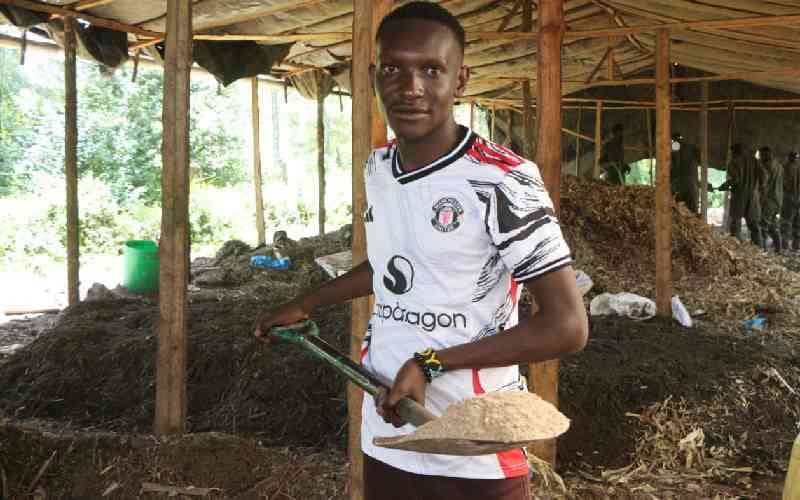We're loading the full news article for you. This includes the article content, images, author information, and related articles.
As youth unemployment persists, a new generation of entrepreneurs is leveraging technology and sustainable practices to create jobs and modernize Kenya’s most vital economic sector.

NAIROBI – On Wednesday, 29 October 2025 (EAT), as Kenya grapples with a significant youth unemployment challenge, a transformative shift is occurring in the nation's agricultural heartlands. A growing cohort of young entrepreneurs is moving beyond traditional farming, harnessing digital tools and innovative business models to create jobs and enterprises across the entire agri-food value chain.
According to the Federation of Kenya Employers, the youth unemployment rate stands at a staggering 67% for individuals aged 15-34. This demographic, which constitutes 35% of the population, faces immense pressure in a tough job market. Simultaneously, the agricultural sector, the backbone of Kenya's economy, contributes over 22% to the Gross Domestic Product (GDP) and employs more than 60% of the rural population. This intersection of a youth bulge and a dominant economic sector presents a unique opportunity for innovation and employment.
Young innovators are not merely tilling land; they are building solutions for every stage of the agricultural process. In what is being dubbed the “Silicon Savannah,” over 183 agri-tech startups are transforming the sector. These ventures are concentrated in key areas such as digital marketplaces, farm inputs, data analytics, and financing.
Companies like Apollo Agriculture, co-founded by Eli Pollak, use satellite data and machine learning to provide credit and customized advice to smallholder farmers, having served over 300,000 farmers across sub-Saharan Africa. Others, such as iProcure and Twiga Foods, are creating digital platforms that connect farmers directly to suppliers and markets, streamlining supply chains and reducing post-harvest losses. These platforms tackle long-standing issues of high transaction costs and market fragmentation that have historically isolated small-scale producers.
The proliferation of mobile technology is a key catalyst. With high mobile penetration, digital tools are empowering farmers with access to real-time market prices, weather information, and financial services. A 2022 survey commissioned by Vodafone found that 98% of Kenyan farmers believe digital technologies are crucial for the future of farming, with 93% planning to increase their investment in such tools. These technologies enable climate-smart agriculture by promoting efficient use of water, fertilizer, and pesticides.
Alongside digitalization, there is a strong movement towards sustainable and green practices. Young entrepreneurs are increasingly adopting organic farming, agroforestry, and conservation agriculture to improve soil health, enhance climate resilience, and meet growing consumer demand for sustainably produced food. Initiatives promoting solar-powered irrigation systems and rainwater harvesting are also gaining traction to combat water scarcity. Organizations like the CAP Youth Empowerment Institute are training young people in these climate-smart techniques, equipping them for green jobs in the agricultural sector.
Despite the progress, significant hurdles remain. Access to finance is a major constraint, as agriculture receives less than 4% of formal credit despite its large contribution to GDP. Many young entrepreneurs also struggle with limited access to land, inadequate training, and market volatility.
Addressing these challenges requires a concerted effort. The Kenyan government, through initiatives like the Youth Enterprise Development Fund and the Agricultural Sector Transformation and Growth Strategy (ASTGS), is working to create a more enabling environment. International partners such as the International Fund for Agricultural Development (IFAD) are also playing a crucial role by rolling out agribusiness hubs to provide skills, financing, and market linkages for youth. As highlighted by Mariatu Kamara, IFAD's Country Director for Kenya, the future of agriculture hinges on the active engagement of young people.
The transformation of Kenya's agri-food sector by its youth is more than an agricultural story; it is a narrative of economic resilience and innovation. By turning challenges into opportunities, these young leaders are not only creating jobs for themselves but are also building a more sustainable and food-secure future for the nation.
Keep the conversation in one place—threads here stay linked to the story and in the forums.
Sign in to start a discussion
Start a conversation about this story and keep it linked here.
Other hot threads
E-sports and Gaming Community in Kenya
Active 9 months ago
The Role of Technology in Modern Agriculture (AgriTech)
Active 9 months ago
Popular Recreational Activities Across Counties
Active 9 months ago
Investing in Youth Sports Development Programs
Active 9 months ago